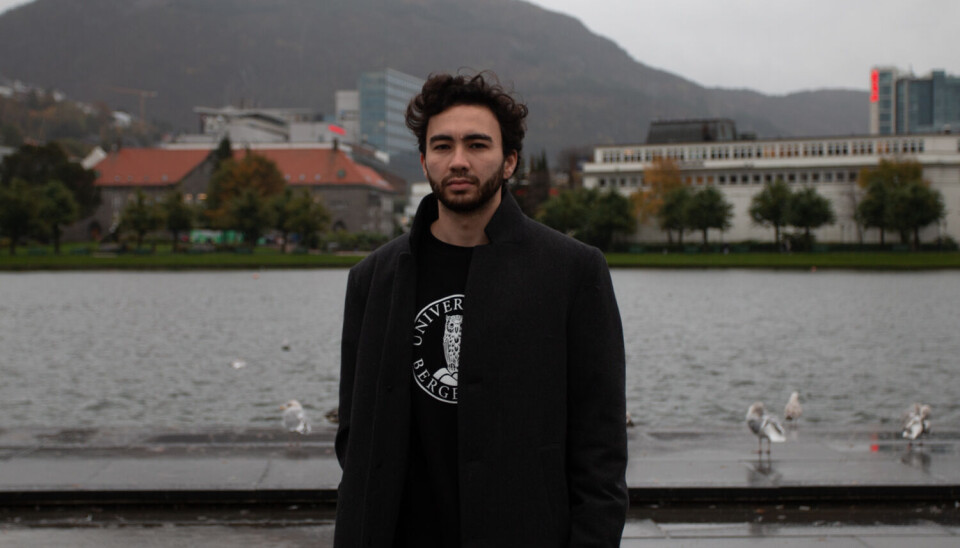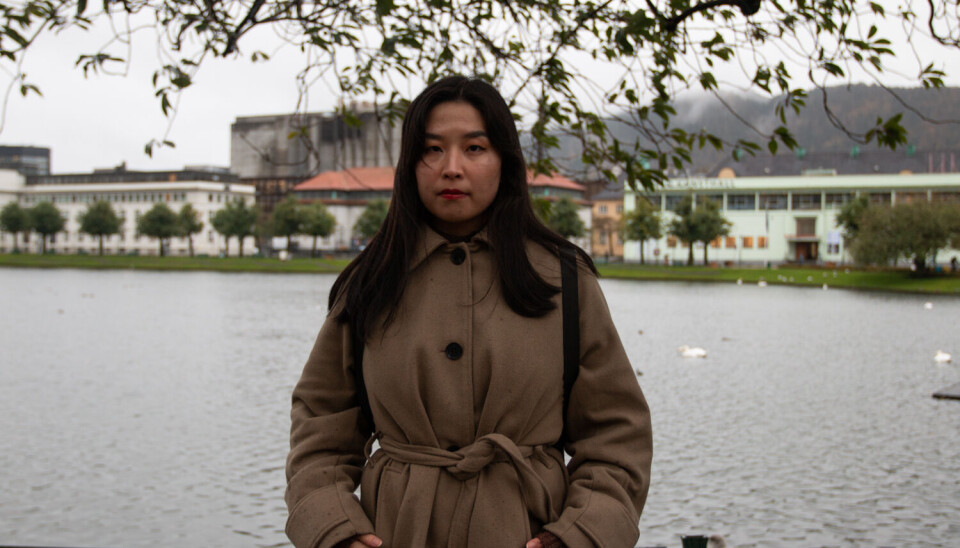English
Creates uncertainty about the future of their studies
In the proposed national budget from the Norwegian government, a fee for international students have been proposed. This creates an uncertain future for Alisher Khodjaev and Udval Sukhbaatar.

The announcement of the proposal to introduce tuition fees for international students outside of the EU/EEA and Switzerland in the 2023 state budget came as a shock to many students.
Not only is higher education free for Norwegian citizens, but this accessibility is also currently extended to students from other parts of the world, both within and outside Europe.
The budget is set to be adopted by the Norwegian parliament in mid-December. If the proposed tuition fee is included in the final budget, it will be implemented from the fall semester of 2023.
State secretary Oddmund Løkensgard Hoel told NRK that the government is planning to demand an estimated sum of NOK 130.000 if the proposal becomes law.
– You must really show you have enough funding
Alisher Khodjaev (25) is a student in Geophysics and is currently in a master program for earth science at the University of Bergen (UiB).
On the issue of funding, Khodjaev says that if he wants to stay in the country next year for his final year, the financial issues will be so severe that they will be out of his hands.
– Does this situation make you unsure of your future in Norway?

– Definitely. It drives the question of whether I’ll be able to pay for my education, and whether I’ll be able to stay here and continue my studies.
Khodjaev is currently surviving on his savings, much of which he has already spent quite enough just to move to Norway. Although he has a part-time job here, it will not be sufficient to cover the cost of tuition for a whole year. He might have to rely on family and friends to cover the cost.
Financial requirements expected from international students begin quite early in the process of becoming an international student.
For Khodjaev, the process was difficult. He traveled from Uzbekistan to the Czech Republic, and from there to Norway just to perfect his resume as a student in this field.
– I come from a not-very-rich country, not only did I have to show documentation for proof of funding, but I also had to transfer over of 120.000 NOK to a deposit account to my university. You must show you really have this money.
– People from EU countries and EU-adjacent countries have the privilege to acquire loans from their countries, but for me, I cannot have a loan from my country. Even a loan with interest or whatsoever. Even if I want to pay (for education), I just don’t have an opportunity, Khodjaev says.
Uncertain about the future
Udval Sukhbaatar (25) is a student from Mongolia who came to Norway last Autumn. She is currently in her second year in the master’s program of Public Administration at UiB and works as the vice leader of UN students in Bergen.
When asked about her initial reaction to the proposal she said:
– I am 50/50 on it because as an international student, we already have to provide confirmation that we have enough funding for each year and submit documentation of this to the police.

– I know that some international students take up loans in their home countries or have their parents take up loans, and they put the loans in the student’s accounts so that they can confirm that they have enough funding, Sukhbaatar continues.
– Some come from the poorest areas of the world
Several students took to the stage to point out the unfairness of allowing free education only for students from EU/EEA countries at the earlier protest arranged by the student parliaments of UiB and HVL.
Oscar Dos Santos Kvalsvik, who is the representative for Equality, Subject and research in the UiB student Parliament is also skeptical of the proposed tuition.
– You can always justify the fact that there are white students in Australia and the USA, but the point is that students from those countries have much better living conditions than students from poor countries, such as my home country.
In an earlier article in Studvest, Signe Bjotveit, the political adviser to the minister of Higher Education had this to say on the criticism made by Kvalsvik and others after the protest:
– This is of course not about discrimination or racism. Norway is obliged under the EEA agreement not to discriminate against citizens from other countries in the EEA area. Students from countries within the EEA are to be treated on an equal basis with Norwegian students.
She told Studvest that the proposal will free up capacity for 2600 students over two years, for a value og 225 million kroner in 2023, and 900 million kroner in 2025.
Bjotveit also underlined that the government does not block foreign students.
– Students outside the EU, EEA, and Switzerland who arrive in Norway as exchange students on deals between Norwegian and foreign institutions, will not have to pay the student tuition fee. This way, we will maintain the possibility for students from every country in the world to come to Norway in order to study without payment.
















